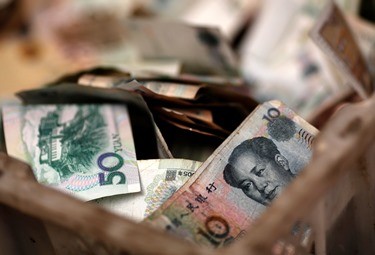In light of the recent stock market rout, China vowed to keep the yuan exchange rate stable despite the negative outlook of some economists.
Experts believe that the event might have an effect on the stability of the currency.
For a second day, Chinese stocks fell as the Shanghai Composite Index slide 3 percent to 3,805.70 at the close, according to a report by Bloomberg.
China is aiming to join the Special Drawing Right (SDR) system of the International Monetary Fund (IMF), and part of that effort is boosting investor confidence in the yuan and instituting a rational and balanced exchange rate.
Currency stability has the potential to persuade the IMF to grant reserve-currency status to the country.
Since last month, policymakers have implemented a variety of market-support measures, such as the banning of large shareholders from selling stakes, ordering state-run institutions to buy equities, allowing the central bank to finance stock purchases, and allowing over half of companies on mainland exchanges to cease trading, the Bloomberg report said.
The Chinese economy also registered a 7-percent growth in the second quarter, inching closer to stability.
General Administration of Customs (GAC) spokesman Huang Songping mentioned that the valuation of the yuan is one cause for the relatively slow exports.
Although two-way trade in the first six months fell 6.9 percent to $1.88 trillion, exports registered 2.1 percent on a year-on-year basis to 1.17 trillion yuan ($188.4 billion) in June, Huang said.
The yuan strengthened against the U.S. dollar by 0.2 percent in the same time period and against the euro and the yen; it appreciated by 6.9 percent and 2.2 percent, respectively.



























